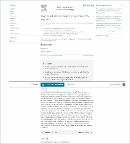| dc.contributor.author | Vancampfort, Davy | |
| dc.contributor.author | Gorczynski, Paul | |
| dc.contributor.author | De Hert, Marc | |
| dc.contributor.author | Probst, Michel | |
| dc.contributor.author | Naisiga, Annetie | |
| dc.contributor.author | Basangwa, David | |
| dc.contributor.author | Mugisha, James | |
| dc.date.accessioned | 2022-02-21T09:55:06Z | |
| dc.date.available | 2022-02-21T09:55:06Z | |
| dc.date.issued | 2018-04 | |
| dc.identifier.citation | Vancampfort, Davy...et al (2018). Exercise self-efficacy correlates in people with psychosis. Elsevier: Psychiatry Research.https://doi.org/10.1016/j.psychres.2017.08.095. | en_US |
| dc.identifier.uri | https://doi.org/10.1016/j.psychres.2017.08.095 | |
| dc.identifier.uri | https://kyuspace.kyu.ac.ug/xmlui/handle/20.500.12504/651 | |
| dc.description | 359-362 p. | en_US |
| dc.description.abstract | Despite the recognition of the importance of exercise self-efficacy in exercise adoption and maintenance, previous investigations on exercise self-efficacy in people with psychosis is scarce. The present study aimed to (1) explore if exercise self-efficacy differed between stages of behavior change in Ugandan outpatients with psychosis, and (2) assess sociodemographic, clinical and motivational correlates of exercise self-efficacy. In total, 48 patients (24 women) completed the Exercise Self-Efficacy Scale (ESES), the Patient-centered Assessment and Counseling for Exercise questionnaire, the Brief Symptoms Inventory-18 (BSI-18), and questions pertaining to intrinsic motivation in the Behavioral Regulation in Exercise Questionnaire-2. Additionally, participants were asked about their exercise behavior in the past 7 days and screened for cardio-metabolic risk factors. Higher ESES-scores were observed in those in the maintenance (n = 17) versus those in the pre-action stage (n = 17) of behavior change. Higher ESES-scores were also significantly associated with lower BSI-18 somatization and higher intrinsic motivation scores. Our data indicated that health care professionals should assist patients with psychosis in interpreting physiological states during exercise. Future research should explore whether bolstering such sources of information might directly or indirectly effect exercise self-efficacy. | en_US |
| dc.language.iso | en | en_US |
| dc.publisher | Elsevier: Psychiatry Research | en_US |
| dc.relation.ispartofseries | Vol.262; | |
| dc.subject | Exercise | en_US |
| dc.subject | Physical activity | en_US |
| dc.subject | Psychosis | en_US |
| dc.subject | Self-efficacy | en_US |
| dc.title | Exercise self-efficacy correlates in people with psychosis | en_US |
| dc.type | Article | en_US |

